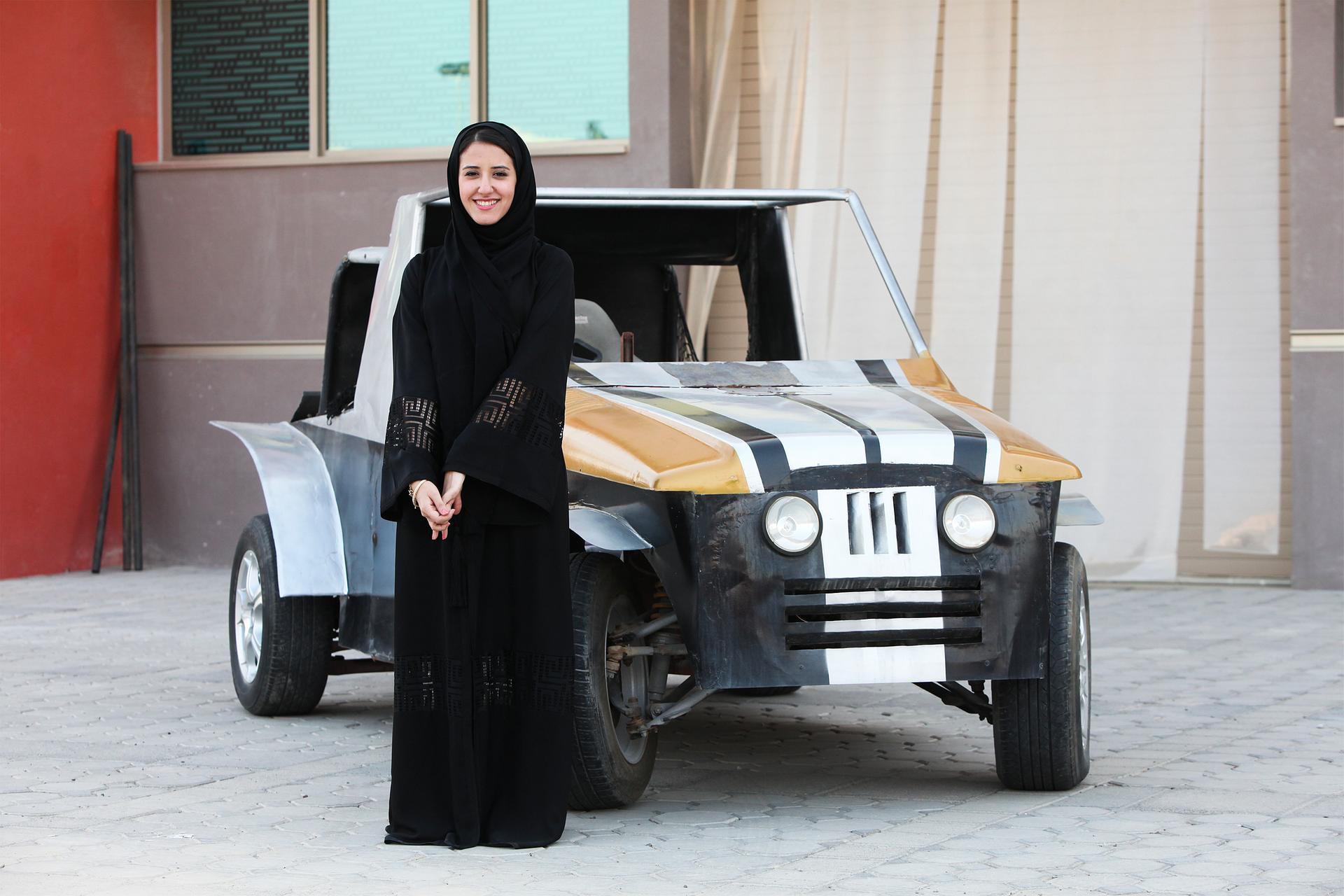I originally wrote this article for the Autumn 2020 issue of WIRED Middle East magazine
Thomas Edison was a busy guy. The renowned American inventor was responsible for such innovations as the phonograph, the incandescent light bulb and one of the earliest motion picture cameras. In total, Edison was granted over 1,000 patents in his lifetime – a figure that is regularly used to illustrate his status as a pioneer. And it’s this symbol of the patent that’s such a powerful representation of innovation and originality – a way of quantifying humanity adapting to an ever-changing world. In a typical year, over 300,000 patents are granted in the United States of America alone, and since 1836, 10 million of them have been issued to inventors from all over the world. But until 2013, none of these came from the UAE. All that changed when 23 year-old Emirati engineering student, Reem Al Marzouqi, was awarded a US patent for designing a car for people with special needs that can be driven without using their hands.
The invention itself was a happy accident. The result of a university project to modify an existing device for people with special needs without violating a current copyright or patent, Al Marzouqi misunderstood the task and instead created an entirely original system for drivers to control the steering wheel with just their feet. Inspired by a documentary on armless American pilot Jessica Cox, and motivated by an impulse to help people adapt to challenging environments, Reem dove head-first into the project. While she may not have got the grade she wanted, her teachers were impressed. At first Al Marzouqi didn’t know what a patent was and had to be persuaded to submit her designs by her teachers at the United Arab Emirates University (UAEU) in Al Ain. “I was a student at the time so (my university) did everything from A to Z. I just had to fill some forms and submit my thesis and sketches. And the sketches were so simple. I was in my first year at university, I still didn’t know how to use the fancy software. So it was all hand sketches.”
But it was in working within these constraints that gave her the biggest lesson in creativity – much of the time, simplicity is key. “People need to be more simple. We tend to complicate things in order to look professional and perfect. Yet the reality is the world needs more simpler ways, smarter solutions.” Her invention sprung from a basic idea and a bunch of scrappy sketches that she put together without any prior experience or technical knowhow. It mightn’t have been pretty, but it did the job. As the Silicon Valley mantra goes, “done is better than perfect”. In some cases, a lack of experience can even stand to your advantage. The more entrenched you are in a field, the harder it can be to think outside the box and be creative. But if you don’t know what the rules are, you’re not bound by them. “The less you know about something, the more creative you are. The more you know, the deeper you go into the box, and you will be surrounding your brain with the barriers and saying, ‘No, you can’t’. But if you don’t know it, you will not say that you cannot.” Her message to young people in the region is that you don’t need to be an expert to become an inventor. Anyone can do it, so don’t be afraid to put yourself out there and get your hands dirty. “People think you have to have a degree, you have to be an expert… to be an inventor. I really thought I’d have to be one of those (people) studying 24/7, reading all the books and knowing everything about everything. That’s the typical idea of inventors. I didn’t think I was one of them.”
When the call came from the University that the patent had been granted she baulked at the attention and actually needed some persuading to show up and accept the recognition. “I first received the call from my university for a photo shoot and I was too lazy to go there and take a picture. I was like, ‘No, just pick anyone and tell them “This is Reem”’. I didn’t realise it until I saw people’s reaction in the media and how the university was taking it as a big deal.” It wasn’t until she read about her achievement in the newspapers that she even realised that she was the first ever Emirati to be granted a patent in the United States. These days Al Marzouqi works with Abu Dhabi Airports, helping to make the new Midfield Terminal become one of the most advanced airport facilities in the world. Meanwhile, the prototype of her car is proudly displayed in the UAEU in Al Ain, a signal to other students that they too can make a difference. All they need is an idea and a pencil.


